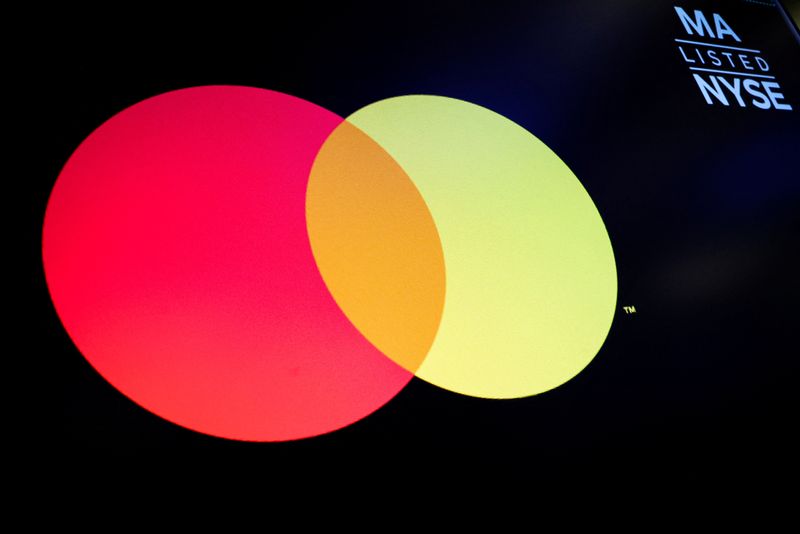By Niket Nishant
(Reuters) -Mastercard beat second-quarter profit expectations on Wednesday and said spending was holding up, reassuring investors worried about customers' financial health after a swathe of companies warned of pressure on low-income households.
The strong performance was helped by robust growth in key international markets like Europe and Latin America, coupled with a healthy U.S. consumer, the company said on Wednesday.
"Mastercard (NYSE:MA)'s results, while not perfect, should give reassurance that the spending environment remains solid," said Logan Purk, technology analyst for Edward Jones.
Earnings from its chief rival Visa (NYSE:V) last week had "likely spooked some investors," he said.
A tight labor market has ensured job security for customers, allowing them to make purchases without restraint, even as the U.S. Federal Reserve keeps monetary policy tight.
Mastercard's profit rose 17%, to $3.3 billion for the three months ended June 30. Excluding one-time costs, it earned $3.59 per share, versus the estimate of $3.51, according to LSEG data.
Revenue rose 13%, to $6.96 billion, also beating estimates.
Trends in July were also strong. Cross-border volume, a gauge of travel demand that tracks spending on cards outside the country of their issue, climbed 17% over last year in July, similar to the second quarter.
The company's shares jumped as much as 5.6% to their highest since April, stretching their lead over Visa this year.
SLIGHT DECELERATION
While Mastercard's earnings were better than expected, they grew at a slower pace than in the first quarter.
Switched volume, which measures the value of transactions processed on Mastercard's network, were 10% higher than last year in the second quarter, compared with 12% in the year's first three months.
"This supports the overall view that consumer spending remains on solid ground, albeit slowing slightly," Purk said.

Several firms have flagged pressure on low-income customers as wage inflation moderates and elevated interest rates weigh on sentiment.
Commentary from payments companies is being watched closely for signs that the Fed's rate-hiking campaign is bearing fruit.